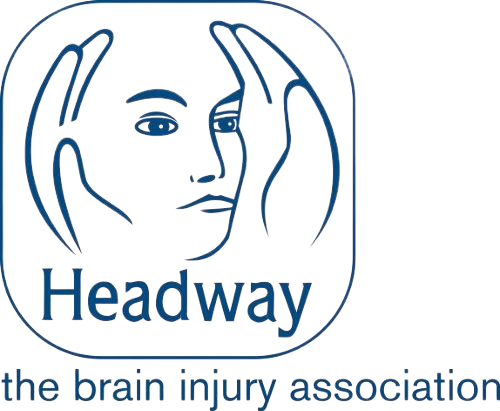Fatal Accident Claims - Your Guide to Justice and Financial Security for Dependents in the UK
Fatal Accident Claims Guide UK: Understanding Timelines, Compensations and Who Can Make A Fatal Accident Claim
Everything You Need To Know About Fatal Accident Claims and How We’re Here To Help
When someone close to you dies suddenly, the grief is overwhelming. On top of this, families are often left with urgent, practical worries - who can make a fatal accident claim, whether you must wait for an inquest, how to cover funeral expenses after a fatal accident, what the time limit for a fatal accident claim is, and how much a case might cost.
Our role, as Personal Injury solicitors, is to give clear, steady guidance and take on the legal burden so you can focus on your family.
Prefer to talk to a person?
Book a free, confidential introduction call.
Fatal Accident Claims: Who Can Claim
Dependants and the Estate: Who Can Make A Fatal Accident Claim - And Under What Law?
If a death was caused by someone else’s negligence, there are two main legal routes. We often run both together so nothing is missed.
- For the dependants (Fatal Accidents Act 1976) - Compensates the family for the financial support and day-to-day services they’ve lost. These are known as dependency claims or compensation for dependents, and they can include income, pensions, and unpaid services. Families often ask, “who can claim bereavement damages in the UK?” This is set out in the same legislation and can be combined with dependency claims.
- For the estate (Law Reform (Miscellaneous Provisions) Act 1934) - Covers losses the person suffered between injury and death (e.g., pain/suffering if applicable) and can include funeral expenses in fatal accident claims.
Usually the claim is started by the personal representative (executor/administrator). If there isn’t one - or no action is started within six months - dependents can bring it. Only one court action is allowed and it should include all dependents.
Families sometimes confuse wrongful death claims with fatal accident compensation - both are valid terms for legal action, and we’ll explain which route best fits your situation.
Fatal Accident Claim Compensations UK
Bereavement Awards, Dependency Compensation and Estate Claims: What You Can Claim in the UK
You don’t need to know the jargon - we’ll identify what applies and explain it simply.
- Bereavement Award - A fixed sum of £15,120 for eligible relationships (spouse, civil partner, qualifying cohabitees, some parents). This is often searched as the bereavement award amount in the UK or bereavement compensation claim. If you’re unsure who is entitled to a bereavement award, we’ll advise you. Families sometimes ask about bereavement damages, which is another way of describing this statutory award.
- Dependency - Compensation for financial support and unpaid services lost. These are carefully valued using the Ogden Tables, forming part of the fatal accident dependency claim calculation. This is also called a dependency compensation claim.
- Estate Claim - Losses suffered before death and claiming funeral expenses after a fatal accident.
In practice, these categories together form the structure of most fatal injury claims. The goal is to ensure families are not left struggling, whether through a bereavement award claim or through broader bereavement damages claims.
Understanding Fatal Accident Claims UK
First Weeks After A Sudden Loss - What Happens Next?
The first days and weeks after a sudden death are some of the hardest you will ever face. Families often describe feeling paralysed by grief while being pulled in several directions - dealing with official processes, financial pressures, and trying to support each other.
We understand that legal issues may feel overwhelming at this stage, so our focus is on giving you practical, human guidance when it matters most.
Understanding The Inquest
If an inquest is opened, it is important to know what it does and doesn’t do. An inquest is fact-finding: it establishes who died, and how, when and where the death occurred. It does not assign blame or prevent you from starting a civil claim. In fact, we usually run the inquest and the civil claim in parallel, so you do not have to wait for one to finish before pursuing the other. This is sometimes referred to as a fatal accident claim during inquest or an inquest and fatal accident claim.
Immediate Costs And Short-Term Support
Funeral expenses, household bills, and sudden loss of income can all cause urgent financial strain. In some cases, we can seek interim payments from the defendant’s insurer during the fatal accident claims process. We’ll also make sure you know about government benefits such as the Bereavement Support Payment, which is different from civil fatal accident compensation claims.
Having A Steady Point Of Contact
At Ellis Hass & Co, we provide one lead solicitor who stays with you throughout the process, supported by our wider team. That means you’re not left chasing for updates or repeating your story - you always know who is handling your case and what the next steps are.
Many families contact us asking if a slip and fall fatal accident claim is treated differently from a road traffic or workplace case. The answer is no - the law applies consistently, and we’ll guide you through the right process.
Fatal Accident Claim Timeline UK
What Happens When? Your 6 Month Claim Timeline Explained
Understanding the process from start to finish can make the situation feel less overwhelming. While every case is unique, most fatal accident claims follow a similar path.
Families often search “how to start a fatal accident claim” or “how to claim fatal accident compensation,” and this step-by-step guide explains it.
Types of Fatal Accident Claims: Road Traffic Fatalities, Work Accidents, Clinical Negligence Deaths and More
The Types of Fatal Accident Claims We Deal With
Every family’s circumstances are unique, and the type of accident can shape the claim. Below are some of the common scenarios we support families with.
If an inquest is opened, it is important to know what it does and doesn’t do. An inquest is fact-finding: it establishes who died, and how, when and where the death occurred. It does not assign blame or prevent you from starting a civil claim. In fact, we usually run the inquest and the civil claim in parallel, so you do not have to wait for one to finish before pursuing the other. This is sometimes referred to as a fatal accident claim during inquest or an inquest and fatal accident claim.
Fatal Accidents At Work
The HSE investigates most workplace fatalities. Their findings on safety systems, training, or equipment failures often play a crucial role in workplace fatal accident claim cases. Families may also hear these referred to as fatal work injury compensation.
Clinical Negligence Deaths
We request full medical records, instruct independent experts, and support you through any inquest. Most fatal medical negligence claims in the UK or clinical negligence fatal accident compensation cases are resolved before court.
Public Transport And Rail Incidents
Civil claims are aligned with RAIB, ORR, or BTP findings. These cases often need specialist fatal accident law advice due to multiple parties.
Defective Products Causing Death
Where death is caused by a faulty vehicle, household item, or medical device, we pursue a product liability fatal accident claim. These are a type of wrongful death claim where strict liability applies.
Compensation for Fatal Accident Claim UK
Projecting Future Financial Loss: How Compensation Is Actually Calculated
Numbers can feel cold, but families often want clarity on how figures are reached. Courts use the Ogden Tables to project future financial loss in fatal accident compensation amounts, covering income, pensions, and services. These calculations form the core of a fatal accident dependency claim calculation or calculating fatal accident compensation. Solicitors will explain these calculations in plain English so you understand the likely fatal accident claim payouts.
For families, understanding the figures behind fatal accident compensation amounts can be reassuring. We also help with questions around the time bar for fatal accident compensation to make sure claims are not missed.
Fatal Accident Time Constraints and Deadlines
What’s The Deadline for Starting a Fatal Accident Claim?
There are strict deadlines for starting a claim. The general rule is three years from the date of death or the dependent's date of knowledge.
If the deadline has passed, courts may still allow a late fatal accident claim or even a late fatal accident claim advice application. Seeking legal advice early avoids uncertainty and ensures you don’t miss your right to compensation.
If you’re worried about the deadline for fatal accident claims, or whether a fatal accident claim time frame has already expired, speak to us early. Even if time has passed, we can sometimes pursue a late fatal accident claim application.
Trusted Fatal Accident Solicitors UK
What We Can Do For You - And Why Families Choose Us
Dealing with legal processes while grieving is incredibly difficult. At Ellis Hass & Co, we take that weight off your shoulders. We handle evidence, prepare inquests, and provide continuous support, combining compassion with expertise.
What sets us apart:
- One lead solicitor you can always reach
- Straight answers on funding (often No Win No Fee)
- Decades of experience in fatal accident law, fatal accident claims solicitors, and fatal accident claims advice
- Proven track record as trusted solicitors with success in bereavement damages claims
Clients often tell us they value our personal approach as much as our results. We are committed to delivering expert fatal accident legal advice while supporting you as a family. If you’re searching for a specialist fatal accident solicitor or looking for the best fatal accident solicitor, we’re here to help.
FREE INITIAL ADVICE ABOUT PERSONAL INJURY CLAIMS FROM TRUSTED EXPERTS
Get expert advice from our personal injury specialists to start your claims process. Our free consultation is the first step, assessing your claim, answering urgent questions and explaining the potential compensation you could receive if successful.
CONTACT OUR PERSONAL INJURY SPECIALISTS TODAY
Fatal Accident Claim FAQs UK
Further Questions You May Have About Fatal Accident Claims
Speak To A Fatal Accident Claim Specialist Today
You’re Not Alone - We’re Here To Help: Speak To Us Today About Your Fatal Accident Claim
Losing a loved one in a sudden accident leaves you with grief, unanswered questions, and practical worries. You don’t have to face this alone. Our team of specialist solicitors can guide you through the fatal accident claim process, explain how to claim fatal accident compensation, and handle the paperwork at your pace.
This guide is designed to give you clarity, but the next step is a conversation. Speaking with us means you’ll know exactly where you stand, what compensation may be available (including compensation for dependents in fatal accident claims UK, the bereavement award fatal accident claim, and the funeral expenses fatal accident claim), and how we can help.
Whether you’re facing a workplace fatal accident claim, a road traffic fatal accident claim, or even a funeral expenses fatal accident claim, we can help. If you’re unsure where to begin, simply call - we’ll outline the fatal accident claim steps and guide you through the entire process.
Your first consultation is free and confidential.
FREE INITIAL ADVICE ABOUT PERSONAL INJURY CLAIMS FROM TRUSTED EXPERTS
Get expert advice from our personal injury specialists to start your claims process. Our free consultation is the first step, assessing your claim, answering urgent questions and explaining the potential compensation you could receive if successful.
CONTACT OUR PERSONAL INJURY SPECIALISTS TODAY
READ OUR BLOG POSTS & LATEST NEWS















